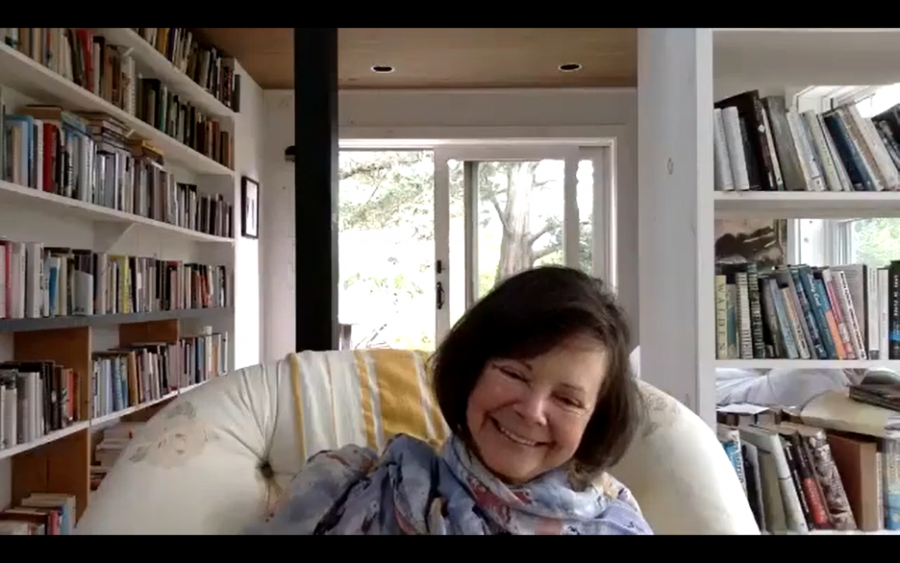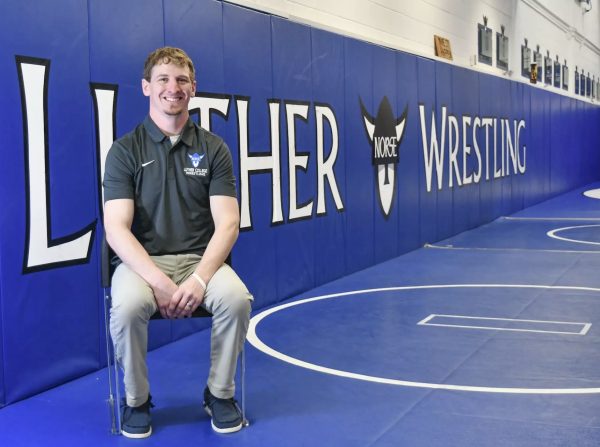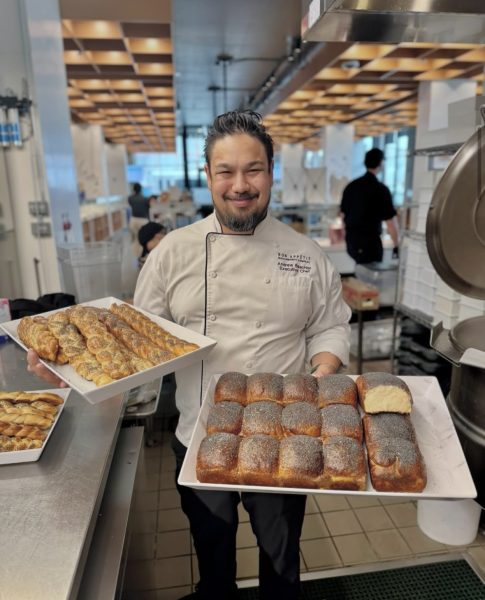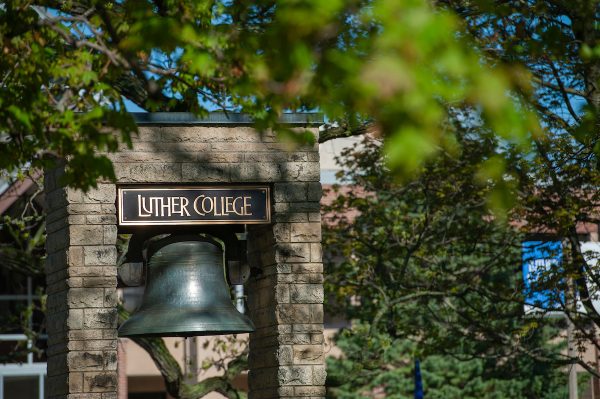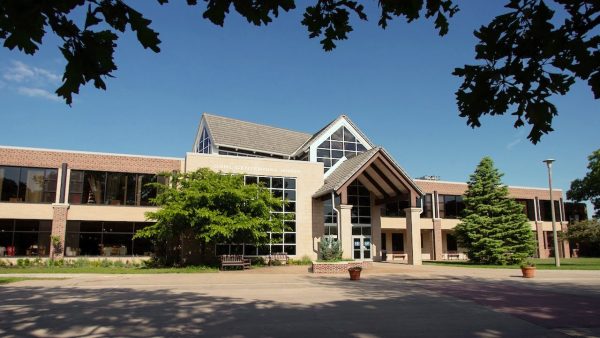Pulitzer Prize Winner Geraldine Brooks Delivers 2021 Farwell Distinguished Lecture
Acclaimed author and Pulitzer Prize-winning journalist, Geraldine Brooks, delivered the 2021 Farwell Distinguished Lecture on Friday, September 24, at 7:30 p.m. via Zoom. The address, entitled “Hearing the Unheard: How Historical Fiction Works,” was broadcasted live to an audience in the Main Hall of the Center for Faith and Life, as the keynote presentation of the 2021 Luther College Writers Festival.
Beginning her writing career as a journalist in Australia for the Sydney Morning Herald, Brooks later moved to the United States to pursue a master’s in journalism at Columbia University. Following this, she reported as a foreign correspondent for The Wall Street Journal, covering crises in the Middle East, Africa, and the Balkans. Brooks shared how her work covering critical moments as a foreign correspondent inspired her voice as a writer.
“How people are changed by crisis is a theme in all of my fiction,” Brooks said. “This comes out of my fascination and bearing witness to this in my earlier work, seeing how some people were drawn to their best selves and others were completely morally lost. I don’t think any of us really know who we’re going to be until that terrible time when we’re visited by a catastrophe of some kind.”
Sponsored by campus programming, the lecture featured remarks given by the New York Times bestselling novelist, followed by a question and answer session with the audience. Brooks spoke to the Luther community from her home in Martha’s Vineyard, as she was advised not to travel. Director of Campus Programming Kristen Underwood explained her inspiration for inviting Brooks to share her story and insight with the Luther community.
“Her wonderful novel, ‘The Year of Wonders,’ takes place during [a] plague in [England],” Underwood said. “It occurred to me that it would be interesting to have her reflect on having written a book about the plague, when we’ve just come through one of our own.”
After eleven years of journalistic field work in some of the world’s most volatile areas, Brooks decided to settle down and give fiction a try. She discovered a passion and gift for it, authoring five fiction novels and three works of nonfiction since. Luther student Canon Reece (‘22) sees value in seizing opportunities to engage with writers like Brooks.
“As an aspiring writer, I think it’s really important to hear everyone’s perspective,” Reece said. “I strive to listen to those who have lived through the writer’s experience, and hear what their story is.”
Enhancing the true story of how a small English village confronted disease and superstition in an honorable act of self-sacrifice, Brooks’ novel “Year of Wonders” bridges the past and present through the perspective of an unlikely heroine, Anna. Underwood expressed how Brooks’ literary voice in “Year of Wonders” and her other novels moves her deeply as a reader:
“She has an amazing way of making the past seem present,” Underwood said. “She gives life and voice to people who in many cases would be voiceless without the writer of historical fiction. I love the feeling of connection to other humans that I get from her work, it’s comforting.”
Brooks’ sharing of her writing process and inspiration gave the audience a close look at how her immersive narratives begin with the study and reflection of the stories of other humans. Christina Dressler (‘23) mentioned how this experience had influenced how she viewed professional writers in relation to herself.
“We assume that those who write professionally are so different from us,” Dressler said. “Events like this allow me to see bits of myself in these writers and realize that they’re real people too, and not so different from us.”
For those who were familiar with Brooks’ work, the lecture and conversation gave insight into the thought, reflection, and work that goes on behind the scenes for Brooks. For those who had not encountered Brooks before this event, her remarks provided an extensive window into the process of writing historical fiction. Professor of English and co-director of the Writers Festival Amy Weldon eloquently contextualized Brooks as a writer of historical fiction.
“A rule of thumb in writing historical fiction is that the farther away from your audience you’re going in place and time, the greater the leap and the more delicate your balancing act as a writer must be,” Weldon said. “Yet no matter the time or place, Geraldine Brooks makes the leap look effortless.”

